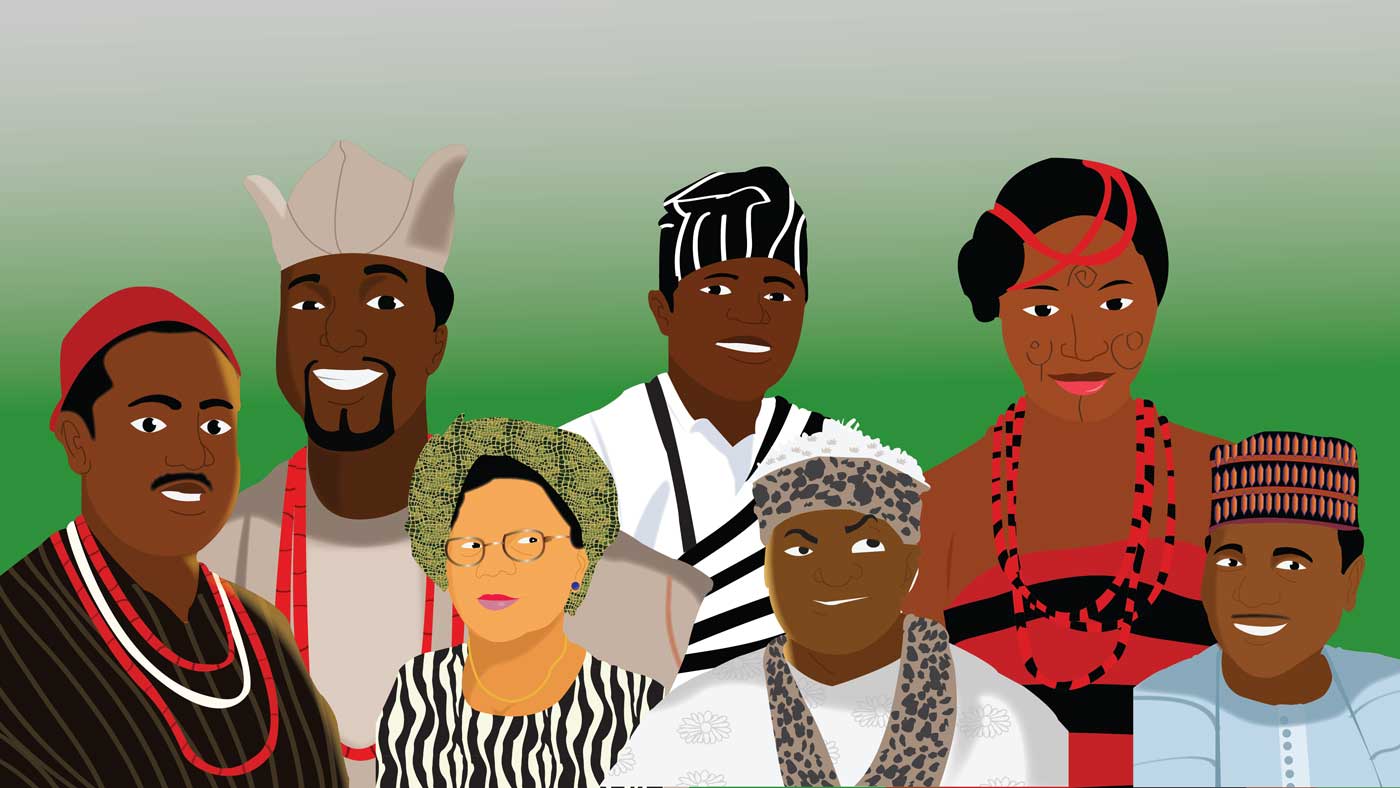Nigeria, located in West Africa, is one of the most culturally diverse countries in the world. With over 200 million people and more than 250 ethnic groups, it is often called the “Giant of Africa” not only because of its population and economy but also its rich cultural heritage.
Cultural elements like art, music, dance, clothing, food, and festivals are rich and varied across these groups, often blending traditional customs with influences from Western education and globalization. Religious life is a mix of Islam, Christianity, and indigenous beliefs, while English is a common link, supplemented by numerous local languages and Nigerian Pidgin.
Discover the rich diversity of Nigeria’s people and culture a vibrant blend of over 250 ethnic groups, colorful traditions, languages, music, and festivals that reflect the nation’s unity in diversity and deep historical heritage.
- Religion
Nigeria’s people are deeply religious.
- Islam dominates the North.
- Christianity is common in the South and Central regions.
- Traditional African religions are still practiced, often blended with modern faiths.
This mix influences festivals, music, dressing, and daily life.
- Ethnic Diversity
Nigeria’s major ethnic groups include:
- Hausa-Fulani (mainly in the North)
- Yoruba (in the South-West)
- Igbo (in the South-East)
Each of these groups has unique languages, traditions, and ways of life. In addition, there are many smaller ethnic communities such as the Tiv, Efik, Ibibio, Kanuri, Ijaw, Nupe, and Gwari.
- Languages
Nigeria is a multilingual nation with over 500 indigenous languages The official language is English, a legacy of British colonial rule, which unites the country and serves as the language of government, business, and education. Major local languages like Hausa, Yoruba, and Igbo are widely spoken and used in media and local administration.
- Traditional Attire
Nigerians are known for their colorful and elegant clothing
- The Yoruba wear agbada (men) and iro & buba (women).
- The Igbo often wear isiagu tops and wrappers.
- The Hausa-Fulani dress in flowing robes like babanriga and veils for women.
These attires are often made from Ankara, Aso Oke, or Adire fabrics and are worn during festivals and ceremonies.
- Festivals and Celebrations
Nigeria’s festivals reflect its cultural richness:
- Argungu Fishing Festival (Kebbi State)
- Osun-Osogbo Festival (Osun State)
- New Yam Festival (among the Igbo)
- Durbar Festival (Northern Nigeria)
These festivals showcase music, dance, traditional sports, and rituals that honor history and spirituality.
- Nigerian Cuisine
Nigerian food is known for its spicy flavors and variety.
Popular dishes include:
- Jollof rice, fried rice, pounded yam with egusi soup, suya, moi moi, akara, and pepper soup.
Each region has its specialties, often reflecting local ingredients and traditions.
- Music and Dance
Nigeria’s music is globally influential, blending traditional rhythms with modern sounds.
- Traditional music uses drums, flutes, and talking drums.
- Modern styles like Afrobeats, Highlife, and Fuji have gained international fame through artists such as Fela Kuti, Burna Boy, Wizkid, and Davido.
- Family and Social Life
Family is the cornerstone of Nigerian society. Extended families often live together or stay closely connected. Respect for elders, hospitality, and community cooperation are strong social values
- Art and Craft
Nigeria’s art dates back thousands of year from Nok terracotta sculptures to Benin bronze works and Yoruba wood carvings.
Modern Nigerian artists also excel in painting, fashion, and film the Nollywood movie industry is one of the largest in the world.
Conclusion
Nigeria’s culture is a vibrant blend of traditions, languages, religions, and creativity. Despite its diversity, Nigerians share a strong sense of unity, pride, and resilience that defines their national identity.


